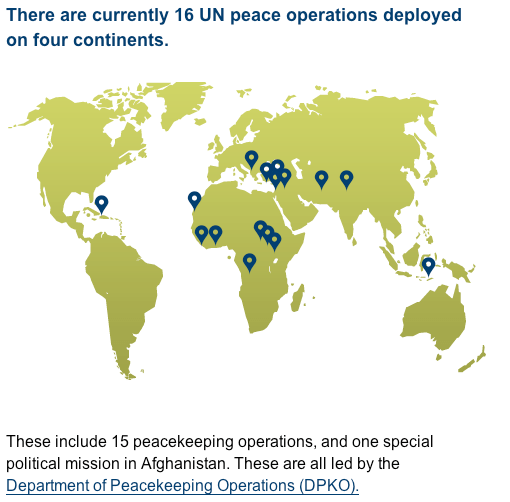In POLI 1140, we spent part of last session watching major portions of the documentary, The Peacekeepers, which explored the role of the UN is setting up and escalating a peacekeeping mission to the Democratic Republic of the Congo (DRC). The documentary used a behind-the-scenes approach to analyze the issues faced by the world’s foremost IGO in implementing its mandate to “protect international peace and security”. The focus of the documentary was on the Ituri region in the eastern DRC province of East Kivu.
As the above map notes, the UN, though the auspices of its Department of Peacekeeping Operations, currently has 16 active peacekeeping missions worldwide. The former DRC mission, known as MONUC, has been transformed, in accordance with UN Security Council Resolution 1925, into MONUSCO.
As of the start of this year, this is the strength of the peacekeeping force in the DRC:
- 19,070 total uniformed personnel
- 16,975 military personnel
- 723 military observers
- 1,372 police (including formed units)
- 976 international civilian personnel*
- 2,868 local civilian staff*
- 588 United Nations Volunteers
Currently, in 16 DPKO-led peacekeeping operations, there are almost 120,000 personnel (uniformed and civilian) serving from 115 different countries, while approved resources for the 2012 fiscal year are almost $8 billion US.
Mind you, this is only one aspect of the world’s greatest IGO–the United Nations. Remember also that the UN is only as strong and as capable as its members states make it. Thus, when you hear somebody say “the UN did this,” or “the UN didn’t do that”, what you should remind these people is that they should be saying “the member states, which comprise the UN, did (or did not do) this, or that…”





You must be logged in to post a comment.